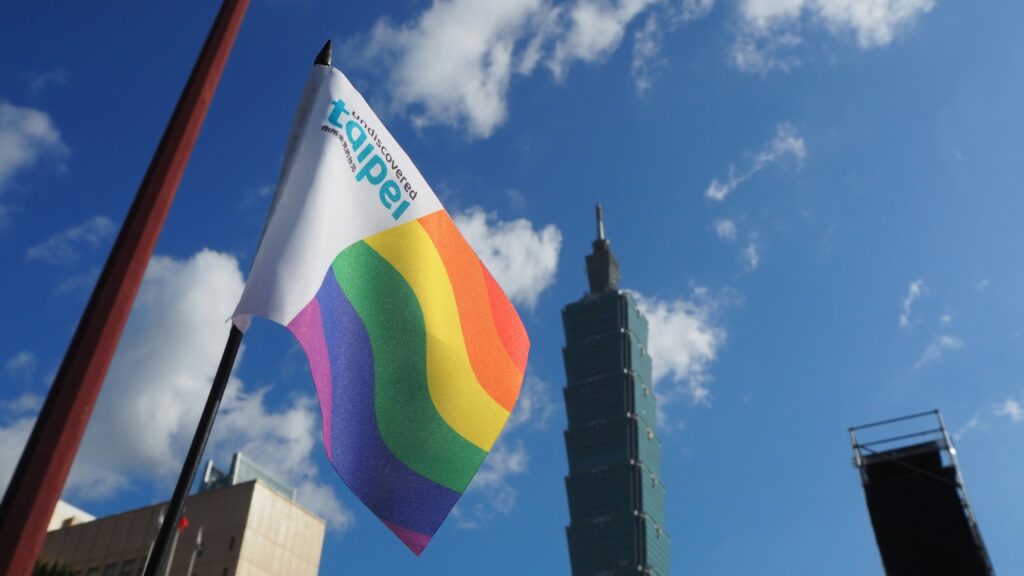Table of Contents
Combining travel with working online – popularly known as being a “digital nomad” – is a lifestyle associated with freedom, diverse cultural experiences, and the opportunity to meet new people.
The rise of remote working since the COVID-19 pandemic has seen the population of people living itinerant lifestyles while working remotely explode, with around 40 miilion digital nomads worldwide in 2024, including a growing proportion of people who previously held traditional office-based jobs.
The uptake of remote work has been widely seen as a game changer for workplace inclusion, with many minorities feeling more comfortable with teleworking arrangements. That includes LGBTQ+ professionals, who say not having to work from an office opens many more opportunities for them.
Yet there is a notable lack of diversity among location flexible workers. Studies of digital nomad demographics show that the proportions who identify as white, male, or heterosexual tend to outweigh those seen among the wider population.
According to Nomad List, among digital nomads who identify as men, a majority also associate themselves with non-progressive political beliefs, while almost three quarters of those who identify as women consider themselves progressive — a trend apparently mirroring a political gap that has emerged between younger men and women worldwide in recent years.
Meanwhile, around 5% of digital nomads self-identify as gay or lesbian, while 8% identify as bisexual. While those proportions are slightly higher than among the general population, it is important to note that digital nomads tend to come from younger demographics, among which LGBTQ+ self-identification is generally significantly higher.
So, what is behind these trends, and why does this apparently adventurous lifestyle seem to attract a less diverse demographic than is seen among the the younger adult age groups that the majorty of digital nomads come from?
Digital nomad demographics and lifestyle
Digital nomads tend to be attracted to urban centers that offer both touristic appeal and an affordable cost of living. While many choose to live abroad because of the cultural experiences on offer, others are drawn to the strong sense of community that exists between nomads.

Many utilize co-living spaces and seek to build a local network with fellow nomads, while others build ties with local communities. Often it will depend on how long they plan to be in a particular country.
For people from minority groups, integration and community building presents a host of additional considerations. LGBTQ+ digital nomads often encounter varying levels of acceptance and tolerance in different destinations around the world and may face discrimination, prejudice, or even legal restrictions in certain countries.
Such concerns can lead LGBTQ+ nomads to avoid visiting some destinations, or even to boycott countries that criminalize homosexuality or fail to effectively address hate crimes. That will generally significantly reduce options, although established and emerging digital nomad hotspots tend to be more welcoming.
For transgender people, the situation can be even more complex, especially if they have not been issued documentation that includes the gender or name they identify with, or simply must deal with officials in countries where gender critical viewpoints are widely normalised.
Legal frameworks for LGBTQ+ workers
According to a database maintained by the International Lesbian, Gay, Bisexual, Trans and Intersex Association (ILGA), legal protection against discrimination in employment has grown steadily over the last 30 years.
Nowadays, 77 countries have explicit legal clauses against discrimination over sexual orientation, while 46 countries cover gender identity. However, the scope and prevalence of these norms can vary a lot.
That includes a major disparity between Europe, where 81% of countries have legal protections against discrimination based on sexual orientation and gender identity in the workplace, and the Americas and Oceania, where less than 60% of countries do. In Asia and Africa, meanwhile, the figures stand at less than 20% and less than 10% respectively.
Even in countries where those protections are enshrined into law, gaps can appear in the legislation. That was demonstrated in the United States this year, when a court ruled that a teacher from a Catholic school could be fired for marrying another man, even though the U.S. Supreme Court ruled in 2020 that people cannot be fired due to sexual orientation or gender identity.
Digital nomad demographics: the cultural perspective
Beyond the legal considerations and local attitudes, another aspect to consider when it comes to understanding digital nomad demographics is culture within the LGBTQ+ community.

According to Nathan Aguilera, founder of online community Gay Digital Nomads, when he started travelling a decade ago, there were no other online sources specifically dealing with the challenges of being an LGBTQ+ digital nomad or seeking to build a strong community.
Aguilera says that while he finds the digital nomad community to be mostly supportive, those who identify as heterosexual don’t usually have to fear being harassed or jailed for their identity.
That also means there are a range of concerns associated with travel that generally don’t affect heterosexual people, such as couples having to book twin or separate hotel rooms, or feeling the need to behave like friends in public to avoid unwanted negative attention.
For those planning to stay in a location for an extended period, finding inclusive housing can also be problematic. In some parts of the world where more conservative mindsets are prevalent, LGBTQ+ travelers can face stigma, even when there are laws in place to prevent discrimination. This can extend to situations such as being the victim of petty crime, when LGBTQ+ people may fear being treated differently by local authorities or the local community.
It is also important to note that while many destinations have gone to considerable lengths to position themselves as LGBTQ+ friendly, that can often be driven by economic motives and is not reflected in the level of acceptance shown by local people.
Aguilera says that leaves many LGBTQ+ professionals pondering whether they want to visit some countries, even if their rights are ostensibly protected by legislation. Ultimately, it comes down to doing your research, choosing how accepted you need to be to feel comfortable, and being prepared for things to not always be how you expect when you do travel.
Destinations for LGBTQ+ digital nomads to consider
The LGBTQ+ community faces non-acceptance and discrimination in every country, no matter how developed or progressive it may be, meaning that no destination should be considered entirely free of risk.
However, when trying to identify LGBTQ+ friendly destinations for digital nomads, strong indicators include properly enforced progressive laws, a visible local LGBTQ+ community, general acceptance of that community among local people, and all of the conditions needed to make digital nomadism viable.
Those conditions include good internet, an affordable cost of living, a generally safe environment, visa or other migration options that allow digital nomads to legally work in the country, and the presence of a strong nomad community to provide support for those who need it.
In many countries, LGBTQ+ acceptance tends to be highest in larger urban centers, where the community is also generally more visible, meaning that major cities and tourism hotspots can often be good choices.
Some standout options include Portugal and Spain, where living costs are lower than in many other parts of Europe, local laws are LGBTQ+ friendly and people are generally welcoming, while both countries offer a digital nomad visa.
Other strong choices include Taiwan and Thailand, with the former being the first territory in Asia to legalize same-sex marriage and its modern capital Taipei emerging as an increasingly popular destination for nomads. In Thailand, meanwhile, Bangkok and Chiang Mai have well-established digital nomad communities, while the country has a welcoming migratory regime for people working remotely.
For those with jobs based in the United States or Canada who wish to remain on a similar timeline to their company, both Argentina and Uruguay present good options, with each offering offerdable living costs, a low crime rate by regional standards, and, in Buenos Aires and Montevideo, capital cities known for their LGBTQ+ friendly attitudes. Each country offers a digital nomad visa.
How useful was this post?
Click on a star to rate it!
Average rating 0 / 5. Vote count: 0
No votes so far! Be the first to rate this post.
We are sorry that this post was not useful for you!
Let us improve this post!
Tell us how we can improve this post?





